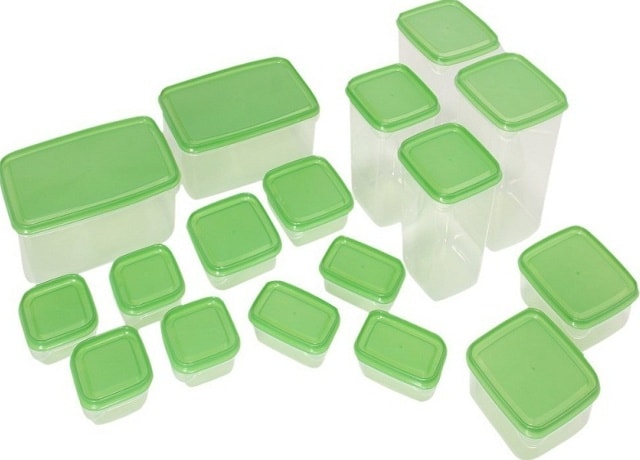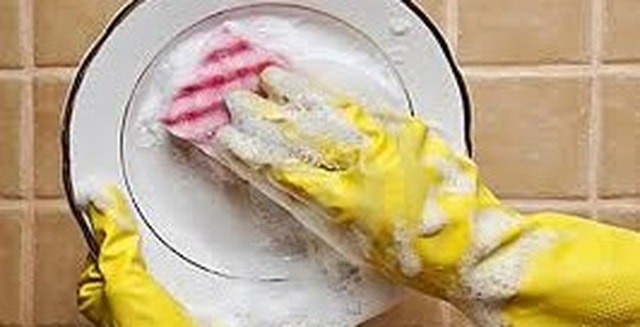Mistakes that turn kitchen utensils into 'killers'
The non-stick coating on the pan surface is a heat-resistant polymer. At high temperatures, the polymer can decompose and produce toxic substances.
Pots, pans, dishes, cleaning chemicals... are indispensable tools in any kitchen. However, mistakes in usage can turn these familiar items into killers in the kitchen.
1. Non-stick pan
The non-stick coating on the surface of non-stick pans is actually a heat-resistant polymer. According to experts, polymers are not toxic. However, at high temperatures, polymers can decompose and produce toxins. In particular, for poor quality pans, the content of these toxins is even higher. If absorbed into the body for a long time, the toxins will cause difficulty breathing, even miscarriage and even worse, cancer.
To minimize these risks, please note: Wash the pan thoroughly before first use. Do not use too high a heat when frying. Do not use sharp metal spoons when cooking because they can scratch the non-stick surface. Do not wash the pan immediately after frying.
 |
| Do not use too high a heat level when frying with a non-stick pan (Illustration: Internet) |
2. Aluminum pots and pans
Pots and pans made of aluminum pose many potential health risks because aluminum itself is very susceptible to corrosion. When using aluminum pots to cook food, aluminum will dissolve into the food and enter the body through the digestive tract, causing poisoning, cancer, and damage to the nervous system over time. In addition, pots and pans made from poor quality recycled aluminum often contain high levels of lead. Lead accumulated in internal organs can cause lead poisoning and cancer.
Therefore, when using aluminum pots and pans, you should note: Do not use them to store salty foods such as braised fish, braised meat, etc.; sour foods such as pickled vegetables, sour soup, etc. Do not cook for too long on the stove, do not cook at too high a temperature. Do not use hard objects or metal scouring pads to scrub, as this will remove the aluminum oxide layer on the surface of the pot or pan.
3. Bowls and plastic food containers
 |
Currently, plastic bowls and food containers on the Vietnamese market have not been strictly inspected. Many products are made from poor quality plastic, even from medical waste. During use, poor quality plastic bowls and containers produce BPA - a toxic substance that causes a number of diseases such as infertility, diabetes, cancer, etc. In addition, even good quality plastic products, after a long time of use, will be scratched and discolored, creating conditions for germs and bacteria to accumulate and cause diseases to humans.
The Ministry of Health has recommended that people should gradually replace plastic bowls, plates, and boxes with ceramic, porcelain, and glass products. If using plastic products, choose reputable, high-quality products. Choose hard, white, transparent, highly glossy plastic with a scratch-free surface. Avoid using plastic products to store hot food above 100oC or use in microwave ovens at high temperatures.
4. Food wrap
Food wrap is popular with many women because of its convenience in preserving food. However, studies show that food wrap is often made from PVC (using the additive DEHA) and PE. DEHA can seep into food, affecting human health, disrupting hormones, and causing early puberty in girls.
When using food wrap, you should buy reputable products with quality certification and choose PE film (with few additives). Do not let the wrap come into direct contact with food, especially greasy foods, hot foods, fruits rich in vitamin C. Do not use wrap in the microwave.
5. Dishwashing liquid
 |
Most dishwashing liquids contain some strong cleaning chemicals. Therefore, the impact of these products on human health is inevitable, especially when in direct contact for a long time: The skin that is in direct contact with chemicals will be eroded, causing dermatitis; sodium hydroxide remaining on dishes that have not been washed thoroughly can enter the stomach, damaging the function of the digestive system.
To protect your health, wear rubber gloves when washing dishes. Do not pour dishwashing liquid directly onto dishes. After washing, rinse thoroughly with clean water. Do not soak dishes in dishwashing liquid for too long.
According to Health & Life

